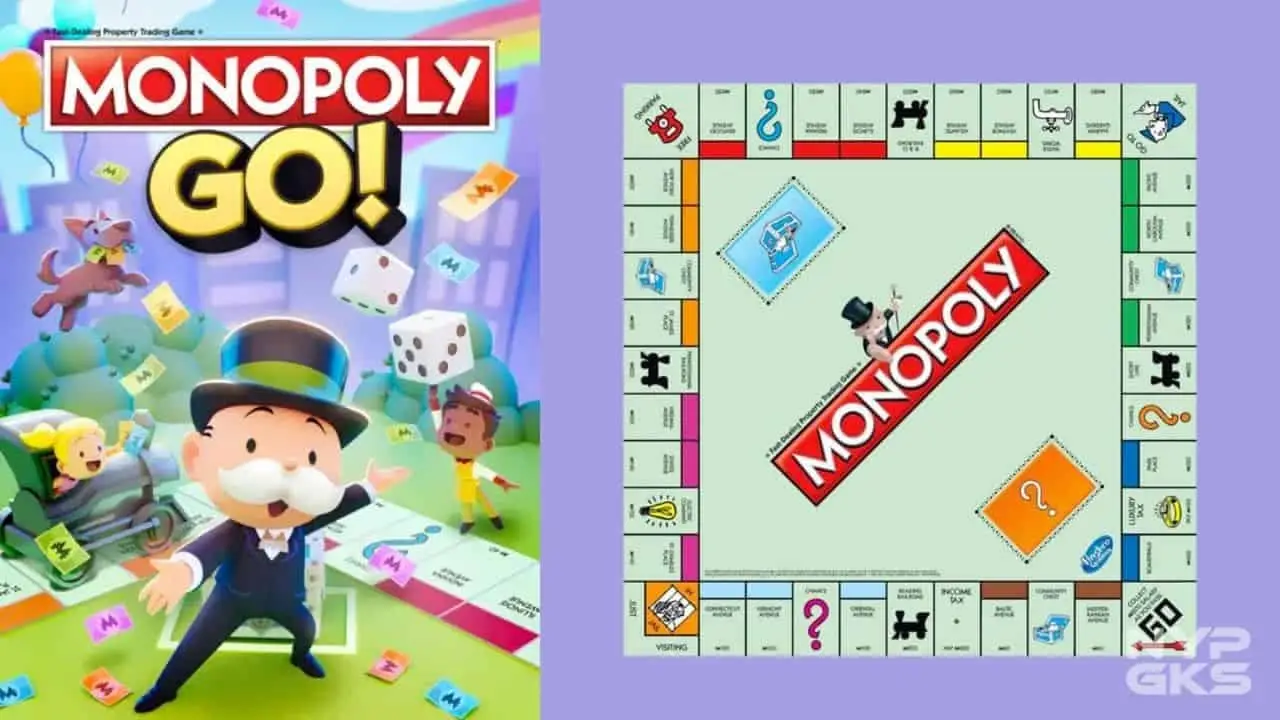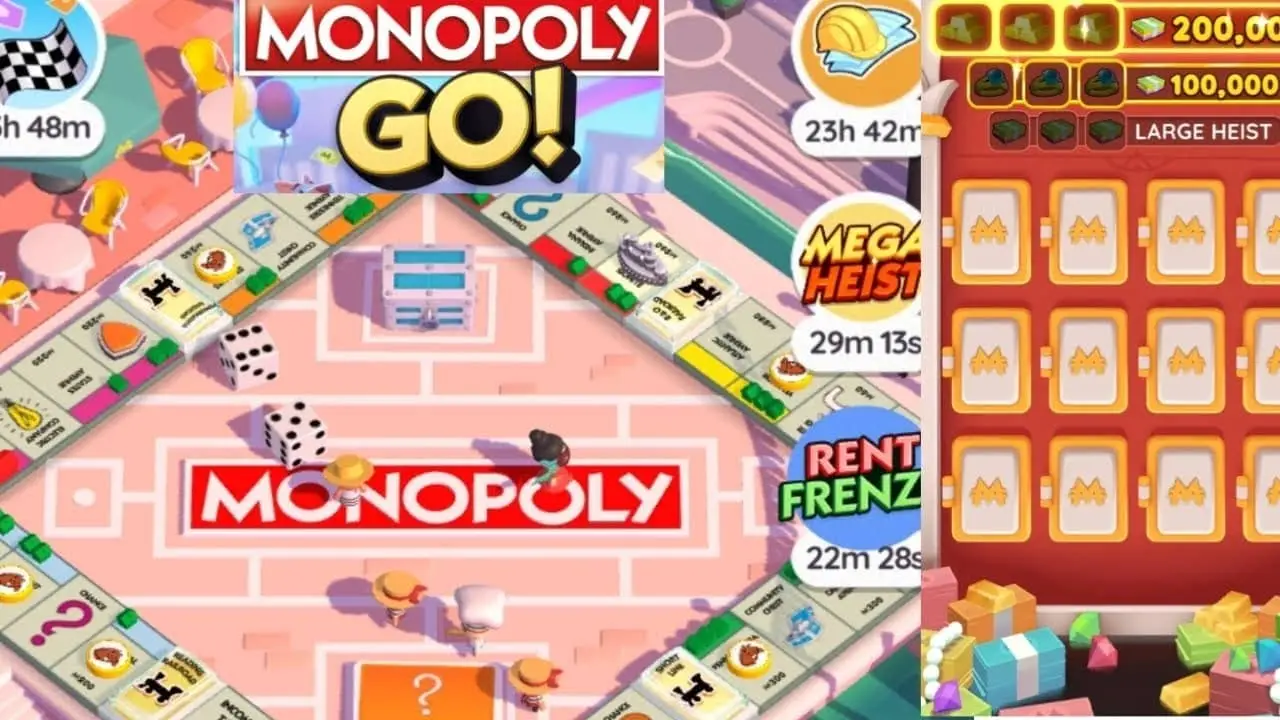Monopoly, the classic board game we all know and love, is a test of strategy, negotiation, and a bit of luck. While the thrill of buying properties and amassing wealth is undeniable, there’s one square on the board that strikes fear into the hearts of players – Jail. But fear not! In this blog post, we’ll explore what happens if you go to jail in Monopoly and how to turn this seemingly dire situation into a strategic advantage.

1. The Initial Panic: Behind Bars
Finding your token incarcerated in the confines of Monopoly’s Jail square can be an unexpected and unnerving experience. The initial panic that sets in is a common reaction, especially for players who may have been on a winning streak or strategically maneuvering around the board.

As you land behind bars, a surge of uncertainty might wash over you. After all, the game’s pace is temporarily disrupted, and your ability to acquire new properties or collect rent is put on hold. The anxiety of being separated from the bustling action on the board may cloud your judgment, but it’s crucial to remember that the Jail square isn’t necessarily a dead-end; it’s a strategic pause that, if navigated wisely, can transform the game in your favor.
This moment of initial panic is an opportunity to take a deep breath and reassess your overall strategy. Consider the broader context of the game—evaluate the status of your opponents, the available properties, and your own financial standing. Instead of succumbing to the fear of confinement, use this time to gather insights, observe the dynamics of the game, and formulate a plan for your swift return to the board.
The key is to view this temporary setback not as a defeat but as a chance to recalibrate your approach. In Monopoly, the unexpected is the norm, and resilience in the face of adversity often leads to strategic advantages. So, as you sit “Behind Bars,” remember that the game is far from over. It’s merely a phase in which your strategic prowess can come to the forefront, ultimately shaping the trajectory of your comeback in the dynamic world of Monopoly.
2. The Dice Decision: To Pay or Not to Pay?
Upon finding yourself confined behind the bars of Monopoly’s Jail, you are faced with a crucial decision: to pay the $50 fine for immediate release or to roll the dice and leave your fate to chance.
The temptation to pay the fine can be strong, especially if you’re eager to resume your property acquisitions or strategically position yourself for upcoming opportunities on the board. However, this decision requires careful consideration and a keen assessment of your current in-game situation.
Rolling the Dice
Opting to roll the dice holds both risks and potential rewards. If you manage to roll doubles (two dice showing the same number), you’ll be freed from Jail, and your turn proceeds as usual. Rolling doubles not only allows you to move forward on the board but can also position you strategically to land on desirable properties or avoid opponents’ developed areas.
On the flip side, failing to roll doubles after three attempts means you’ll be obligated to pay the $50 fine on your next turn anyway. Therefore, the decision to roll the dice becomes a calculated gamble. Analyze the current board layout, your opponents’ positions, and the potential benefits of leaving Jail sooner rather than later.
Paying the Fine
Choosing to pay the $50 fine provides immediate liberation from Jail, allowing you to continue with your turn unhindered. This option can be appealing if you have a specific plan in mind or if your assessment suggests that staying in Jail for another turn might not yield significant advantages.
However, paying the fine comes at a cost, depleting your cash reserves. It’s essential to weigh the short-term benefit of immediate freedom against the potential long-term consequences on your financial standing, especially in a game where every dollar can make a difference.
In the end, the decision to pay or roll the dice is a strategic choice influenced by the ever-changing landscape of the Monopoly board. Successful players assess the risks and rewards, adapt to the current circumstances, and make decisions that align with their overall game plan. So, as you stand at the crossroads of Jail, carefully consider your options and roll—or pay—with purpose.
3. The Observant Inmate: A Watchful Eye on the Board
As you bide your time behind the cold, iron bars of Monopoly’s Jail, a unique opportunity presents itself—the chance to become the observant inmate. While your fellow players continue their journeys around the board, your restricted movement allows for a strategic vantage point, offering insights that can shape the course of the game.

1. Surveying the Competition
Locked away from the hustle and bustle of property transactions and rent collections, you become a silent spectator to the maneuvers of your opponents. Take advantage of this time to observe their strategies, financial situations, and property portfolios. Are they amassing monopolies, or are they struggling to stay afloat? This information is invaluable and can inform your own decisions once you rejoin the game.
2. Analyzing Property Hotspots
From your confined position, analyze the current property landscape. Which areas are proving to be lucrative for your opponents, and where are they encountering financial challenges? This reconnaissance can guide your future property acquisitions, ensuring you target areas that are strategically advantageous and potentially avoiding those that have become financial minefields for others.
3. Financial Planning
While your token sits idly in Jail, your finances remain untouched by property expenses and potential rent payments to opponents. Use this financial respite to reassess your monetary strategy. Consider upgrading your existing properties, strategically mortgaging assets, or even negotiating favorable deals with other players. The observant inmate can turn this time into an opportunity for careful financial planning, setting the stage for a powerful comeback upon release.
4. Timing Your Exit
The observant inmate knows that timing is everything. As your turn in Jail progresses, strategically choose the right moment to reenter the game. Consider the positions of your opponents, the upcoming property spaces, and the potential advantages of your immediate return. With a well-timed exit, you can capitalize on the observations made during your incarceration.
In Monopoly, the observant inmate transforms a seemingly restrictive situation into a strategic advantage. While others hastily navigate the board, you patiently gather information, plan your moves, and position yourself for a triumphant return. So, as you peer through the bars, remember that sometimes, the most significant moves are made in stillness, and the observant inmate holds the key to unlocking a winning strategy.
4. The Property Management Advantage
As your token remains confined within the confines of Monopoly’s Jail, an unexpected silver lining emerges – the Property Management Advantage. This unique situation provides a temporary reprieve from the usual financial demands of the game, offering astute players a strategic opportunity to enhance their overall position on the board.
1. Shielded from Rent Payments
One of the immediate benefits of being in Jail is the respite from paying rent. While your opponents may be shelling out dollars for landing on your prime properties, you’re shielded from this expense. This financial breather allows you to accumulate cash, potentially setting the stage for impactful moves once you rejoin the active gameplay.
2. Resource Management and Upgrades
With your coffers safeguarded from the demands of rent, you gain a unique chance to focus on resource management. Assess your current property portfolio and strategically invest in upgrades. Consider adding houses or hotels to properties that are likely to be landed on frequently. This not only increases the rent you can charge but also strengthens your overall financial position when the game resumes.
3. Strategic Property Deals
The temporary removal from property transactions can be turned into an advantage. Engage with your fellow players from the confines of Jail, exploring potential deals that can benefit both parties. Perhaps you can acquire a key property at a favorable price or negotiate a mutually beneficial arrangement that sets the stage for future collaboration. The Property Management Advantage extends beyond the board to the art of negotiation.
4. Negotiating from a Position of Strength
As an inmate, you’re not burdened by immediate financial concerns, allowing you to negotiate from a position of strength. Whether it’s brokering deals, forming alliances, or strategically planning future transactions, your time in Jail positions you as a thoughtful player with the ability to see beyond the immediate dynamics of the game.
In Monopoly, the Property Management Advantage transforms what might seem like a setback into an opportunity. While your opponents scramble to manage their immediate financial obligations, you have the luxury of orchestrating your property empire with a long-term vision. So, embrace the advantage, make shrewd decisions, and watch as your property portfolio becomes a formidable force when you emerge from behind the bars.
5. The Speedy Exit: Making the Most of Freedom

In the dynamic world of Monopoly, the confines of Jail are but a temporary pause. Whether you roll doubles or patiently wait for your turn, the moment of release marks the beginning of a new chapter—one where the savvy player can leverage their time behind bars for a strategic advantage.
Fresh Perspective
As you step out of confinement, take a moment to survey the current state of the board. Your temporary absence may have shifted the dynamics among your opponents. Properties may have changed hands, alliances formed, and new power players may have emerged. Embrace this fresh perspective, and adapt your strategy accordingly.
Informed Decision-Making
The knowledge gained during your time behind bars is a valuable asset. Reflect on the observations made, property movements, and the financial landscape. Use this information to make informed decisions that align with your overarching game plan. Being attentive to the changes in the game positions you to make strategic moves that capitalize on the evolving dynamics.
Turning the Tables
The Speedy Exit is not just about rejoining the game; it’s about doing so with intent. Consider how you can turn the tables on your opponents based on the information gathered during your incarceration. Whether it’s making calculated property acquisitions, engaging in strategic negotiations, or formulating a new financial approach, your return should be a game-changing moment.
Capitalizing on Opportunities
With a fresh perspective and informed decision-making, be on the lookout for opportunities that may have arisen in your absence. Properties up for grabs, weakened opponents, or advantageous board positions—capitalize on these openings to propel yourself forward. Your return to the game is not merely a continuation; it’s an opportunity to seize the initiative.
Strategic Maneuvers
As you reenter the bustling world of Monopoly, consider employing strategic maneuvers that catch your opponents off guard. Whether it’s making strategic trades, fortifying your property portfolio, or strategically positioning yourself on the board, the Speedy Exit is a chance to implement well-thought-out moves that can shape the outcome of the game.
In Monopoly, the Speedy Exit is not just a return to the game; it’s a strategic comeback. Use the knowledge gained during your time behind bars as a catalyst for calculated moves, turning the tables on your opponents and positioning yourself for success. Your release is not just an event; it’s a game-changing moment that sets the stage for your triumphant return to the forefront of the Monopoly board.
Conclusion: Embracing the Monopoly Jail Experience
In the fast-paced world of Monopoly, going to Jail might seem like a setback, but with the right mindset, it can be a strategic advantage. Take the time to observe, plan, and reassess your game strategy. Who knows? Your next roll of the dice might just lead you to victory.
So, the next time you find yourself behind bars in Monopoly, remember: it’s not the end of the game; it’s a strategic pit stop on your path to real estate domination.
Happy gaming!










